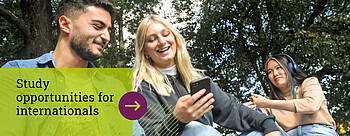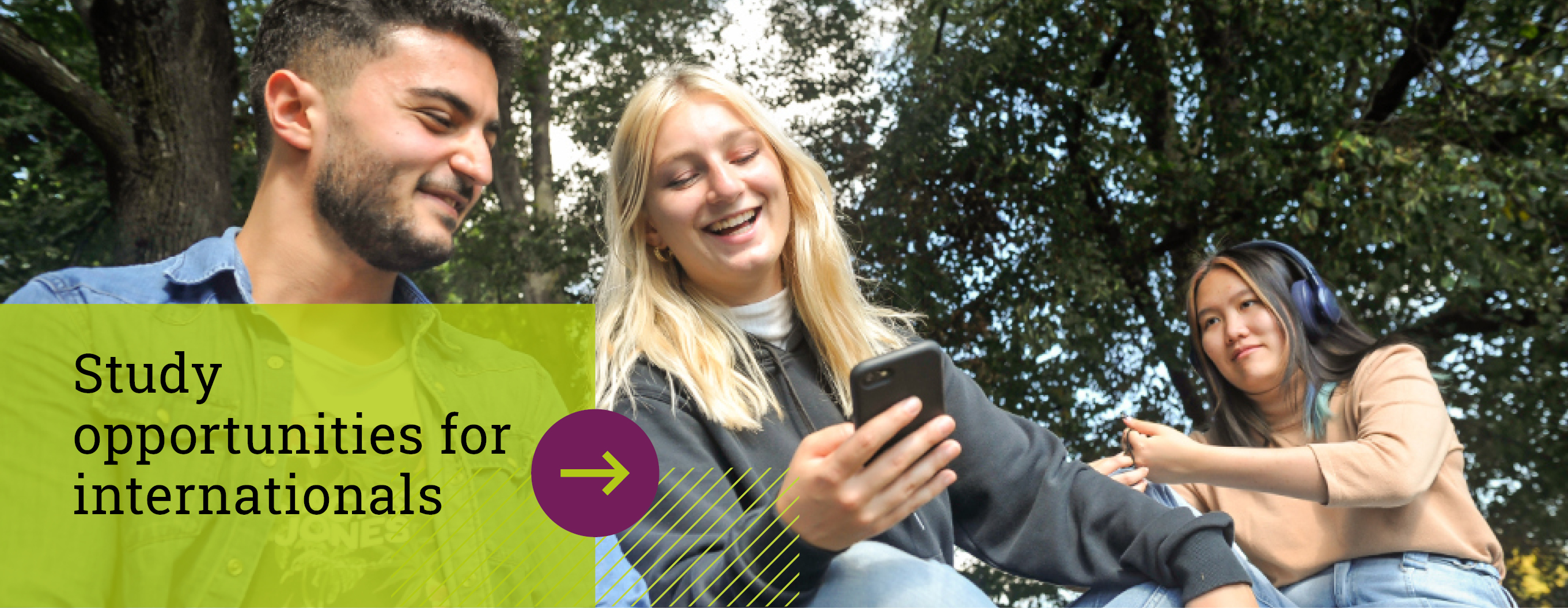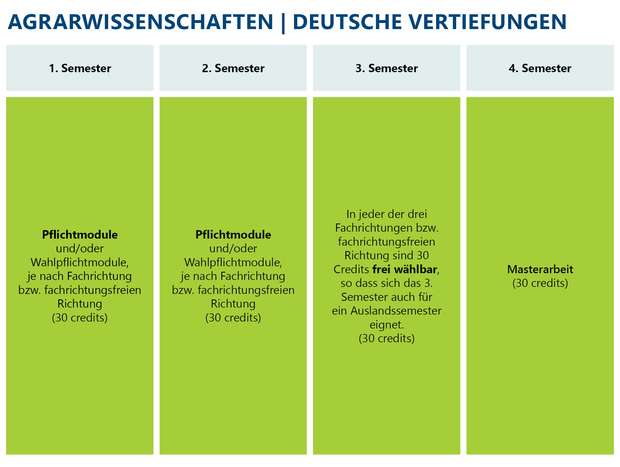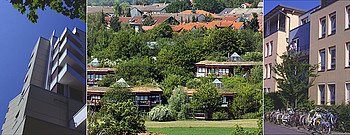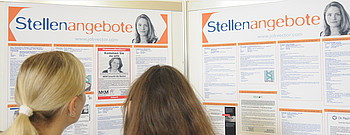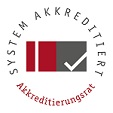Agricultural Sciences (Master’s)
Many options for specialization or diversification
Agricultural Sciences (Master’s)
Exploring the Diversity of Agriculture
Agriculture is undergoing profound transformation processes around the world: In addition to food production, landscape, environmental, and resource protection are the tasks of the future. If natural resources, ecology, plants, soils, agricultural engineering, and agricultural policy issues are important to you and you want to help shape future agricultural production in transformation processes, then this degree program should be your first choice. It draws on the full breadth of the largest agricultural faculty in Germany and offers you tailored options for specialization. The focus is on research-oriented work with talented researchers in their ongoing, inspiring projects.
| Degree Master of Science (M.Sc.) |
4 semesters 120 credits |
Language German |
University places Unlimited |
Location Stuttgart |
|||||
Depending on your major, you will take a specified number of compulsory, semi-elective, and elective modules. As a rule, you start with 3 to 6 compulsory modules in the first academic year, depending on the major.
There are no compulsory modules in the degree program with a major; here you can put together your own profile from the modules of the majors. This is followed by the semi-elective and elective modules. You can choose elective modules from the entire range of Master's modules offered by the faculty, that is, also from modules assigned to other Master's programs.
If you have a special interest in topics that are not primarily agricultural, you can even choose elective modules from the degree programs of our neighboring faculties.
If you are interested in a summer school or a stay abroad, this can be easily arranged in the 3rd semester. As long as you are well-prepared, it will not be a problem to have credits you earn during a summer school or stay abroad recognized for your program.
More information about the individual modules can be found in the module catalog.
- Module description Agricultural Engineering
- Module description Soil Science
- Module description Plant Production Systems
- Module description Animal Sciences
In the first year of studies,
students take the required number of compulsory, semi-elective, and elective modules depending on their major. You can find information about the regulations for the different majors or the possibility of studying without choosing a major in the curriculum.
The second year of studies
serves to build up an individual profile. Around 280 modules are available. Students can choose either a detailed subject-specific profile or an interdisciplinary one. In addition, the second year of studies is well-suited for a semester abroad.
The Master's thesis is also written during the second year. The students have six months to complete the thesis independently using academic methods. They can choose their own research question in internal or external areas or the thesis can be carried out as part of existing projects (national and international).
You want to know more?
Detailed information about the course and structure of the degree program can be downloaded here:
Downloads
Flyer
Curriculum
Admission regulations
Module catalog
- Advisory and Innovation Services in Agri-Food Systems
- Agricultural Economics
- Agricultural Engineering
- Animal Science
- Soil Sciences
- Plant Production Systems
- Animal Sciences
- Transformation Management for Sustainable Agri-Food Systems
Videos on the majors
The Master’s program conveys a comprehensive spectrum of theoretical and expert knowledge and is just as diverse as the questions that occupy agricultural scientists.
Students learn:
- in-depth subject knowledge
- how to apply scientific methods
- scientific work
- to grasp, transfer, and analyze natural scientific contexts in a solution-oriented manner
- to systematically work though problem-solving approaches
- to work in a team in a structure and goal-oriented manner.
After completing their degree, students can work in many different professions as managers. For those interested in science, it is also possible to continue with a doctorate.
Interesting and individual career prospects
The Master's degree in Agricultural Sciences provides you with a sound education for professions in agriculture and in the upstream and downstream sectors, including a scientific career.
You will have good opportunities on both the national and international job market after completing your studies.
Possible career fields include:
The following career paths are open to you:
- Managing agricultural operations
- Planning and development
- Research and teaching
- Writing expert statements
- Teaching and advising
- Press and public relations
- Quality assurance
- Marketing and sales
- Development aid
- Management or project management
Potential employers include:
- Universities and other research and teaching facilities
- Government agencies in the area of agriculture and the environment
- Companies in the agricultural, horticultural, environmental, energy technology, and water management sectors
- Companies in the supply, processing, and retail sectors
- Service companies
- Associations or cooperatives in the agricultural, environmental, and ecological sectors
- Organizations active in development cooperation
Preparing scientific results for use by practitioners
The best way to practice applying the knowledge you have acquired is during an internship, which you can choose according to your interests and integrate into your studies.
Gaining practical experience
You can integrate an internship in an agricultural company or a company in an upstream or downstream sector into the degree program as part of the elective portfolio module.
Acquiring new competences
You will find additional further education opportunities on campus in the form of the F.I.T continuing education courses, the “Artificial Intelligence and Data Science in Hohenheim” (AIDAHO) certificate, or the start-up support in the “Innovation Greenhouse”.
Learning from practice
The degree program offers you numerous opportunities for practical learning. Lectures by practitioners, projects with companies, exciting excursions, and applied projects during your studies give you a direct insight into professional practice and promote your ability to actively apply the knowledge you have acquired.
Strengthening language and intercultural skills
Would you like to acquire further language skills? For this purpose, the Language Center at the University of Hohenheim offers various semester and intensive courses that you can take individually during your studies. You can even acquire the UniCert III C1 certificate as part of an elective module. During your studies, you will also acquire intercultural skills naturally by interacting with your fellow students from all over the world.
Researching during your studies
During your studies, you will have the opportunity to participate in scientific working groups and gain valuable insights into research practice. By actively participating in research projects, student research projects, and specialized research modules, you become part of the scientific process and acquire qualifications for independent scientific work.
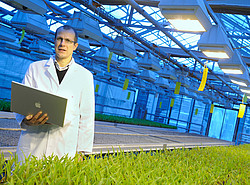
Good reasons to study at the Faculty of Agricultural Sciences in Hohenheim
First Place not Once but Three Times: The current Global Universities Ranking from U.S. News & World Report, the renowned NTU ranking, QS World University Ranking, and dathe Center of World University Ranking put University of Hohenheim’s agricultural research in 1st place in Germany.
In the agricultural university ranking from top agrar, the agricultural students at the University of Hohenheim give the grades 1.5 to 2.0. According to the ranking 2016, 88% of the students surveyed would recommend the University of Hohenheim for agricultural studies.
The University of Hohenheim puts great importance on quality teaching, which is demonstrated by several award-winning reform projects.
These projects include for example mobile teaching (German e-learning innovation and young scientists award (d-elina) in the category “Campus” at the BITKOM) or the ethics module, developed by the student group FRESH and awarded by the UN.

You can choose from more than 200 modules offered by the Faculty of Agricultural Sciences. Upon request, you can even select from all of the Master’s modules offered by the University of Hohenheim and the other cooperating universities.

The vision of the Faculty of Agricultural Sciences is a global agricultural system which is productive, environmentally-friendly and socially-minded, and which is in harmony with society’s demand for a multi-purpose orientation.
Agricultural research at the University of Hohenheim is focused on four areas:
- Food for all: Security of global food supply
- Hazard prevention: Climate change and scarcity of resources
- Beyond fossil fuels: Bioenergy and bio-based value-creation networks
- Diversity instead of monoculture: Genome Diversity in Agriculture
There are no easy answers to these kinds of questions. That is why agricultural researchers at the University of Hohenheim work across disciplinary boundaries, collaborating with colleagues in the natural sciences, business administration and economics, and the social sciences, for instance in bioeconomics, a field of research and teaching that will become even more important in the future. That collaboration also has an impact on teaching.
Number 1 in internationalization: In the current EU ranking U-Multirank, the University of Hohenheim has a top spot in internationalization.
The basis for this placing is the decades-long, global commitment of the Agricultural Sciences. Especially our tropics research with 10 professorships has made the University known around the world.
International opportunities for students:
- 80 partner institutions worldwide (40 of which are in the Erasmus+ program)
- Member of the Euroleague for Life Sciences - the network for Europe’s best
- scholarship programs for travel, research, and exchange
- Worldwide alumni network
- Studies according to international standards for excellence and international competitiveness of graduates
Professors of the Faculty of Agricultural Sciences are in high demand.
The top experts include:
 | Chair of the scientific advisory council Prof. Dr. Martina Brockmeier The German Council of Science and Humanities is considered the highest-ranking advisory committee on topics of science in Germany. Its scientific members are appointed by the Federal President. |
 | In the Bioeconomy Council Prof. Dr. Regina Birner The Bioeconomy Council is an independent advisory committee for the German federal government. The goal: to establish a cross-sectoral and bio-based economy in Germany that uses as few fossil raw materials as possible. |
Further members in important commissions and expert lists
- Prof. Dr. Iris Lewandowski and Prof. Dr. Joachim Müller are members of the BMBF scientific advisory council "Agricultural Systems of the Future”
- Prof. Dr. Enno Bahrs is member of the BMEL scientific advisory council for biodiversity and genetic resources
- Expert lists on various agricultural topics

Scholarship and awards for studies, final theses, travel, and attending conferences: Thanks to many supporters, the University of Hohenheim has an unusually extensive scholarship culture.
Around 100,000 Euros is the total amount of all scholarships and awards that are presented each year at the Dies academicus.
More than 700 hectares of test area: Among German universities, the University of Hohenheim owns the largest amount of property. For students, this means a lot of room for their own experiments, research, and a great deal of hands-on experience.
Also directly on campus: State institutes for transferring science into practice, the Hohenheim Gardens, and the German Agricultural Museum.

The future lack of experts and managers in the area of agriculture / nutrition / horticulture means students of agricultural will have good career prospects. This was shown by a 2015 study by the Bundesverband Agrar Ernährung Umwelt (VDL).

The University of Hohenheim is a university with a long tradition. You will experience a truly unique university atmosphere enriched by the Baroque palace, the historic gardens and parks, and modern architecture: In 2009, the University of Hohenheim was declared the most beautiful campus university in the state.
In 2017, Hohenheim's President Stephan Dabbert was chosen by the German Association of University Professors and Lecturers (DHV) as the most popular president in Baden-Württemberg for the third year in a row. He was ranked second in all of Germany.
This jewel is located south of the state capital Stuttgart. Because it is close to Stuttgart, you have all the opportunities available in a big city. The University of Hohenheim is only a few minutes away from the airport, the Stuttgart Trade Fair Centre, and the autobahn and is easily reached with public transportation.
 | Unique party atmosphere: The historical Thomas-Müntzer-Scheuer, an old barn with a new purpose, is the party center of Hohenheim. |
 | The University ball in the pompous palace rooms is the social event of the year. |
Because the last year of studies can be designed very flexibly, the credits completed during an exchange semester can be transferred as elective modules. Therefore, studying abroad does not mean that students have to repeat semesters at their home university.
The Faculty of Agricultural Sciences cooperates with 80 partner institutions in research and teaching, 40 of which are universities in ERASMUS programs.
The Office of International Affairs of the University of Hohenheim offers information and advice on studying abroad and scholarships.
| Application deadlines | |
|---|---|
| 1st subject-related semester | for the winter semester: preferably by 15 July so that all formal requirements can be met in time. Applications are accepted until 15 September. for the summer semester: preferably by 15 January so that all formal requirements can be met in time. Applications can be submitted until 15 March. |
Higher subject-related semesters | for the winter semester: preferably by 15 July so that all formal requirements can be met in time. Applications are accepted until 15 September. |
| Admission requirements | |
|---|---|
| Formal requirements |
|
| Language skills | German language proficiency required |
| Pre-study internship | no |
| Selection procedure | |
|---|---|
| Selection criteria | None, the number of places is not limited
|
| Selection interview | no |

